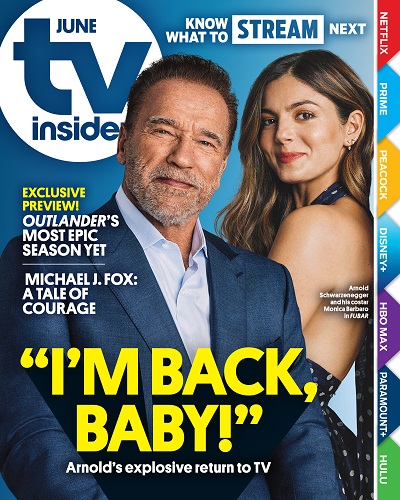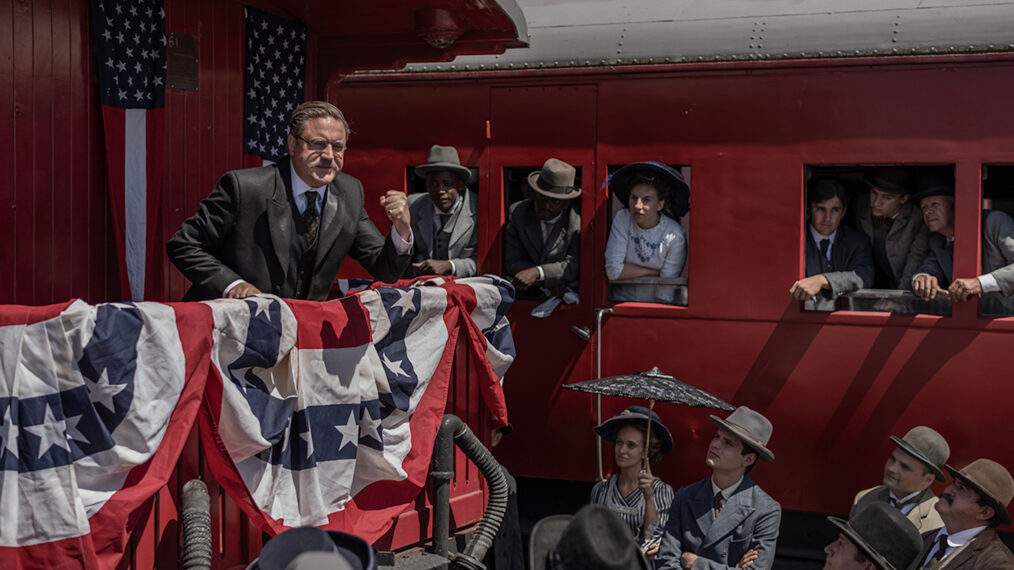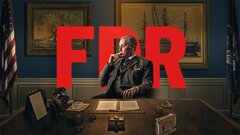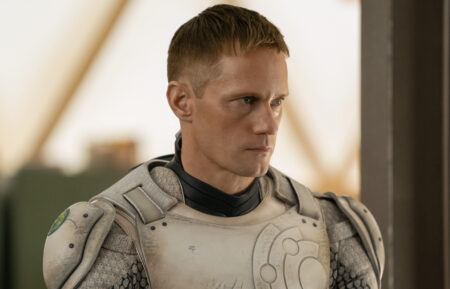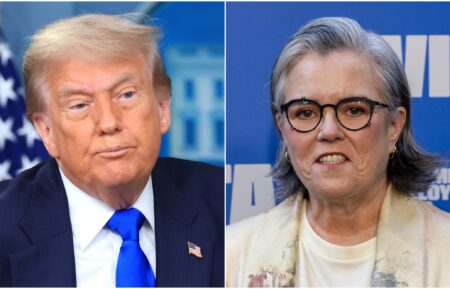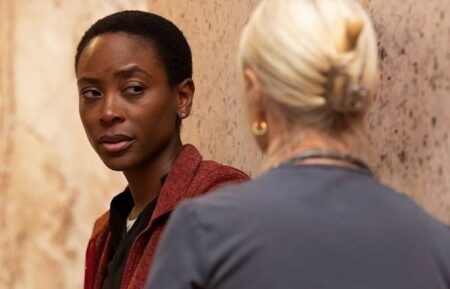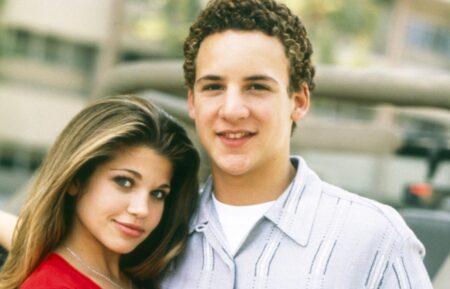‘FDR’ Boss on Humanizing Franklin Delano Roosevelt Through Letters, Diaries & More
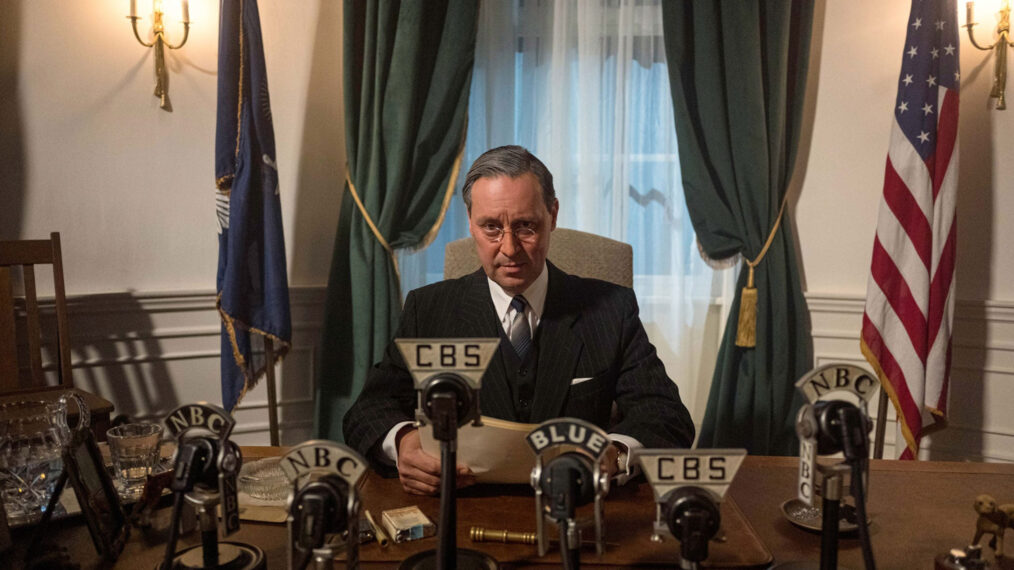
Preview
“Churchill said about FDR that it was like opening your first bottle of champagne to encounter him. There was such sparkle,” says leading presidential historian Doris Kearns Goodwin, executive producer of FDR, a three-part documentary series about America’s longest-serving — and possibly most effervescent — president, Franklin Delano Roosevelt.
Roosevelt held office from 1933 until his death in 1945 and famously led the nation out of the Great Depression and toward victory in World War II. The sociable, naturally optimistic Harvard grad (played by Christian McKay, above) comes to life in vivid dramatizations based on letters and diaries. Context is provided by archival footage, interviews with historians and scholars, and prized documents — like a draft of his speech after the Pearl Harbor attack, where he crossed out “world history” and wrote “infamy.”
The doc (premiering May 29 on the History Channel) also looks at FDR’s formative years, including as a spunky young boy in elite Hyde Park, New York. Those early moments are important to Goodwin, an exec producer on three previous History series on presidents. “We show people before they become the icons they are, leaders forged through adversity. It’s not just what they did, but who they were,” she says.
The biggest personal challenge he faced was polio, which he contracted in 1921 at 39. The disease left him unable to walk without the assistance of painful metal leg braces, which the press agreed not to photograph. “He began to empathize with people who were dealt an unkind hand,” says Goodwin.
FDR was also made better by his smart wife, Eleanor (Alice Bounsall), his fifth cousin once removed and the niece of Theodore (Rufus Jones, from Goodwin’s Theodore Roosevelt). She challenged her husband on subjects like segregation, inspiring him to call her “a welcomed thorn in my side.”
Clearly, Roosevelt knew how to turn a phrase. He also knew that even the best government policy wouldn’t fly without the people’s trust, so he used his skill as a storyteller to connect with the American public. Growing technology, the radio, allowed the president to speak directly to folks at home with evening “fireside chats.”
Says Goodwin, “When he died, people felt like they had lost a friend.” You might feel like you’ve gained one after watching this humanizing portrait.
FDR, Series Premiere Monday, May 29, 8/7c, History

